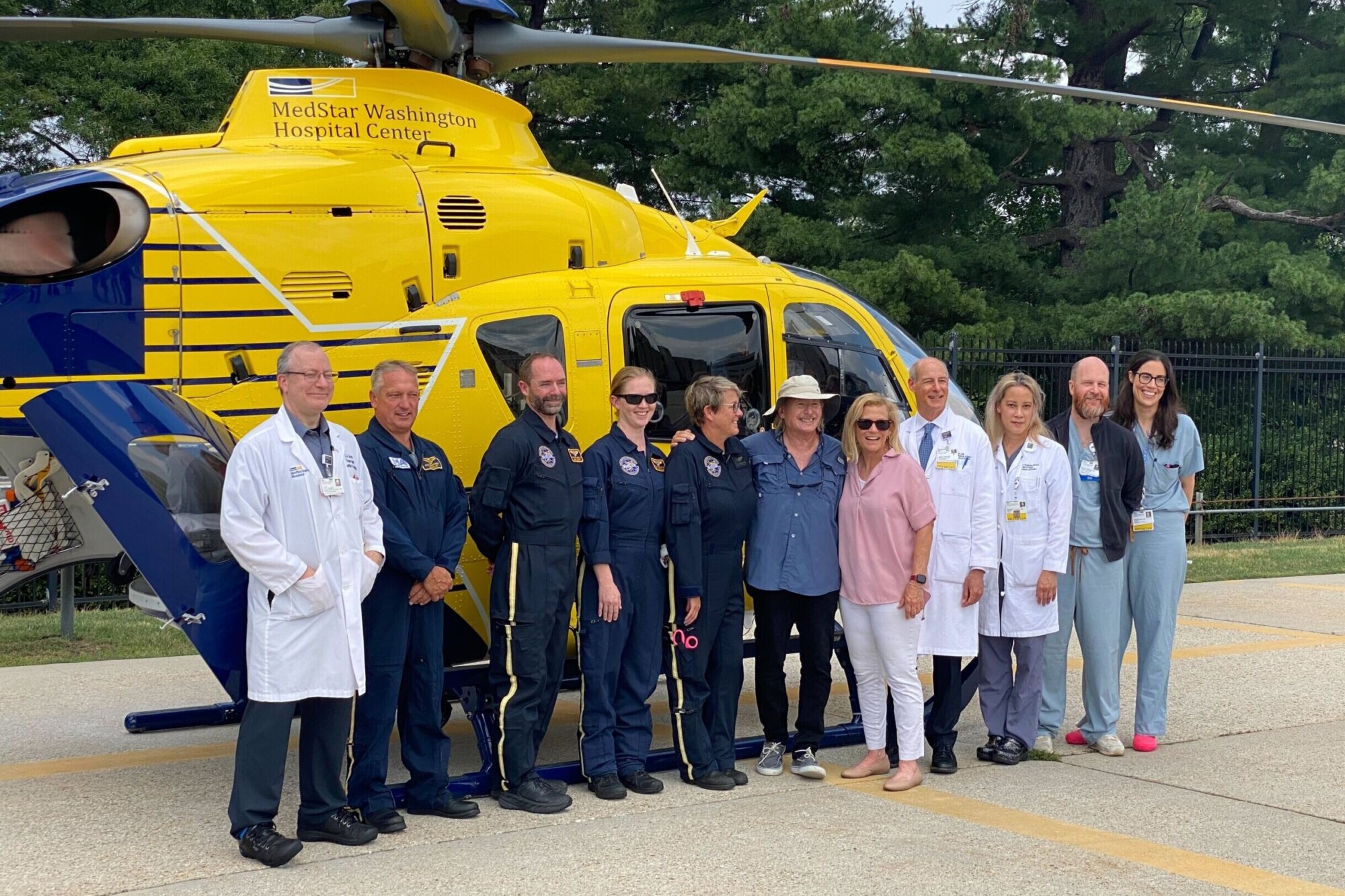
Medstar Health is celebrating their Transport Air Medical Service’s 40th anniversary.
If you have been on death’s door over the past four decades, there’s a good chance they picked you up. What started as a single helicopter flying in and out of Washington Hospital Center on July 3, 1983, has since morphed into three flight bases, with four helicopters operating countless flights that have saved lives.
Currently, the crews are flying around 6,000 patients every year, most of whom are in smaller community hospitals but need a higher level of care.
“It is an absolute miracle that I’m here,” Beth Ramsey told WTOP.
She went to a hospital in Southern Maryland thinking she had bronchitis, but actually had a rare heart disorder and had to be flown to Washington Hospital Center for an immediate transplant.
“Because they were able to transport me here so quickly, it’s the only reason I’m alive, and I am just so thankful for their services,” she said.
Kevin Brooks had a similar experience when he suffered a serious heart attack while at Annapolis Harbor.
“Apparently, I had coded at the hospital in Annapolis, and so they actually put me on life support while they were flying me here. So again, I am an example of someone who has been given that second chance,” Brooks said.
Both patients were able to mingle with a flight crew on Wednesday and see inside the helicopter that once transported them.
This video is no longer available.
Our helicopters are effectively mobile ICUs,” Dr. Matt Sasser, the medical director for MedStar Transport, told WTOP.
They’re staffed by a critical care nurse and paramedic. One thing very noticeable is a lack of space in this high-flying ICU. It’s a condition very familiar to Karen Weller, who has served as a registered nurse aboard the choppers for 26 years.
“The key is pre-planning, anticipating the patients needs,” Weller said while giving a tour of her helicopter.
Weller said one of her most memorable moments came in the wake of the Sept. 11 attack on the Pentagon. She was on the crew that flew a victim from a Northern Virginia hospital to the Washington Hospital Center.
“We could see the smoke rising from the Pentagon. The next day, I flew to Arlington hospital and got one of the survivors,” she told WTOP. “So many people felt helpless and unable to do things, and we actually were able to go do something to help.”
“They were very exciting times,” said Wade Smith in a statement, the 40-year veteran flight paramedic who served on MedSTAR Transport’s first flight. “They’re still exciting times. That’s why I’m still doing it.”








